As a Seventies child born to hippiefied parents ‘home made’ was the bugbear of my youth. All us children of that beige decade wanted was shop-bought preformed, pre-packed and preserved products with the whiff and glamour of machinery and commerce. And then along came the Eighties with its shiny uniformity and we all got what we wanted and quickly realised how dull it all was.
How predictable then that the barometer has come full swing to a time where handmade is in vogue. Made with love, care and that all-important ingredient, time, these premium products, whether food or crafts are much sought after, providing a perfect point of difference for c-stores.
And according to Harry Goraya of Rosherville Post Office in Gravesend the homemade element and the quality it offers is like catnip to customers: “They love the products because they taste so good and they are homemade.” The store has a strong food-to-go element and it’s from here that the idea for providing more homemade food first arose. The catalyst being left-over bread, which his wife Charlie turned into bread pudding. “About a year and a half ago we were getting a few left over breads from our baked goods at the end of the day and a member of our staff suggested we make bread pudding. We tried a couple of different versions and gave them away free to customers and asked what they thought and they really loved them.” Word soon spread and Charlie went from making it once a week to four times. “It flies out,” says Harry, “We’ve got one guy who comes to the area to visit his family once a week and he takes six pieces with him - enough for him to have a piece each night until the next time he visits.” Another customer reports that he eats it with custard and honey. “Customers love it so much because it’s that homemade, traditional flavour that Charlie has brought out.” Luckily for Harry, his wife loves cooking: “It’s a passion of hers. Even when she does a full day here she’ll go home and cook in the evening. She even cooks at 5am to be in here at six.”
Harry says that already having food to go as part of the business helped when it came to complying with regulations but he still gave his local council a ring regarding the bread pudding: “We wanted to know the correct way to sell it and they told us we had to work out a price per kilo which we do. Charlie cuts it into small to medium sizes and weighs and prices it.” Prices for the products were set in line with prepacked offerings: “Before we had the food to go we used to buy in sandwiches and samosas so we price just under that.”
He multisites the bread pudding in the chiller, food to go area and on the counter to maximise sales. The bread pudding has been so successful that plans are afoot to bring out a range of Charlie’s homemade food. “We’re still deciding on a name but it’ll have a label on it to let everybody know that it’s freshly made.” Harry says, “She’s now doing vegetable samosas, about 100 a day and a new thing which is the jacket potato with Charlie’s homemade chicken curry - they really fly out. We’ve got a bus depot quite close and they tend to come over in the evening to get them. One guy says to make sure we’ve got two for him every time.” He says that the move to doing more homemade will be done “gradually over the next six months, which is how we do everything. Charlie makes something and the family tastes it and then we try it out on regular customers”. The shop has extended its food-to-go area so that it’s more open to the public and is expanding into meal deals in the evening. “We’ll give customers time to get use to it all then we’ll hit them with Charlie’s stuff in the evening.”
However, Harry says that while having the homemade element within the store was a bonus, it wasn’t an easy option. “You have to be prepared to put in the commitment to the quality of product and all the regulations you have to comply with health and hygiene wise. Also there is staff training to consider.” He says that despite the effort it entails offering homemade is all worth it: “As well as drawing customers in, the homemade element creates a point of difference and it shows that we have a connection to the community.”
There are few stores more strongly connected to the community through a homemade initiative than Andrew Thornton’s Crouch End Budgens. As part of the store’s revamp following the opening of a Waitrose down the road, a roof garden was planted, tended by volunteers from the local community. The idea for the ‘Food from the Sky’ project, according to store manager Neil Dougard, came to Andrew after a visit to Acorn House restaurant in King’s Cross: “They have a very small garden and grow their own herbs.” Turning the roof into an allotment was no mean feat and saw 10 tonnes of soil delivered to the car park as well as 250 tubs to grow the produce in. There was also a myriad of health and safety hoops to jump through including making sure that the roof could take the weight of the garden. This year will be the second year of produce and things are going well. “We generally harvest every Friday” says Neil. “To give you some idea of the quantities last Friday there were 40 bags of salad and 30 punnets of tomatoes.” He says that the customers love the freshness of the produce: “It’s local - eight metres straight up and is on shelf within 20 minutes of harvesting,” and the produce flies off the shelves. “On Saturday we put out 38 bags at 10am and by 2pm there was one bag left.”
With the emphasis firmly on sustainability, the store is in the process of building a greenhouse out of empty plastic bottles which will help them keep growing produce throughout the winter and plant produce such as peppers through the summer.
The store also runs a Stall4All whereby locals can hire a stall at the front of the shop for a day or half day and sell their own produce, whether it is food or crafts. The only stipulations are that it must be produced by themselves and be made in London.
While maybe not quite ready to plant a roof garden, Simon Biddle of Biddles Convenience Store in Webheath, Worcester is firmly committed to his strong homemade offering. The store offers a wide range of homemade food including pies, cakes and ready meals such as lasagnes and moussaka.
Simon started on the homemade route around 10 years ago with a few sandwiches and cakes before progressing to the range he has today. The food was originally made in the Webheath store but moved to the kitchens of his Studley deli four miles away when it opened two years ago: “It just became too small at Webheath. We ran out of space for people to work in.”
One of his most successful lines are his ready meals which are precooked and prepacked in the kitchens and have a three day shelf life. “It does draw customers in,” he says. ” We have loads of orders and people travel from far and wide for our homemade. People are going back to tradition, and even the younger generation know our pies and still come and get them.” He changes his offering according to the time of year: “Now it’s getting colder we’ll look to do beef stews and dumplings and in the summer it’s more quiches. It’s just working out what will sell.” He employs two full-time staff and three part-time to make and sell the products. He sources meat locally and, as a vegetable wholesaler, he uses local veg. He is justifiably proud that the open plan kitchen at Studley has just received Gold Award from his Environmental Health inspection.
He says that being known for his homemade products gives him a point of difference: “There aren’t many convenience stores which sell homemade so it gives us the edge, and obviously ready meals in supermarkets are mass produced. It gives us a thing that’s unique.”
Because of the two kitchens Simon has had to go through the health and hygiene red tape twice with two different councils. “It wasn’t a massive hardship but it was enough.” However, he warns other retailers that producing homemade food isn’t for the faint-hearted: “You need to look into it properly and get good people around you with all the regulations it entails. I’ve got a manager who does it all for me and they’re a qualified chef.” He says that quality is key as is trial and error to see what your particular customers will buy: “You’ve got to work out what would be viable for your store.”




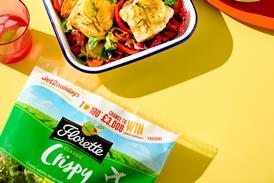










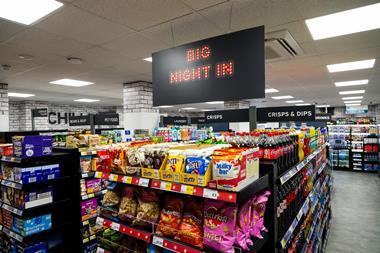
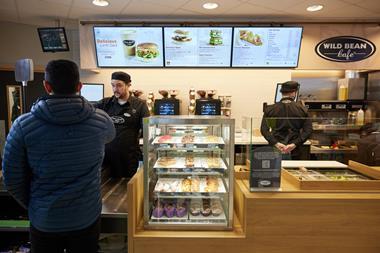

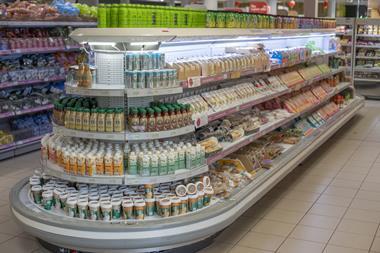

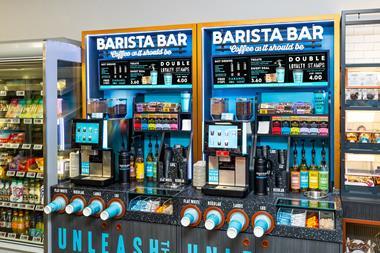






No comments yet